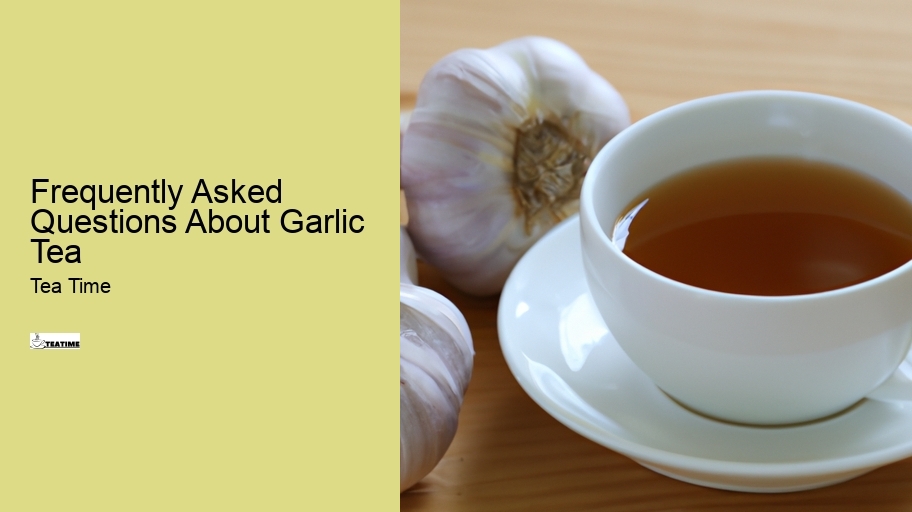

The choice between fresh and dried garlic in tea can affect both its flavor and health benefits. Fresh garlic, known for its pungency and strong flavor, is often preferred for its higher concentration of allicin.
Dried garlic, on the other hand, offers a more mellow and less pungent flavor. While it may have slightly lower levels of allicin, it still retains many of garlic’s beneficial properties. Dried garlic is also convenient and can be a good alternative when fresh garlic is not available.
Ultimately, the choice depends on personal preference and availability. Both fresh and dried garlic can make a healthful and flavorful tea, each bringing its unique qualities to the brew.
Garlic tea is gaining popularity as a natural aid in weight loss efforts. Its potential to boost metabolism and aid in fat burning makes it an appealing addition to a weight loss diet. Regular consumption of garlic tea can also help in regulating appetite, potentially leading to reduced calorie intake.
The compounds in garlic, particularly allicin, are thought to have thermogenic properties that increase metabolic rate. This can enhance the body's ability to burn fat more efficiently. Additionally, the natural diuretic effect of garlic helps in reducing water retention, contributing to weight management.
While garlic tea can be a supportive element in a weight loss regimen, it should be accompanied by a balanced diet and regular exercise.
Garlic tea is renowned for its rich antioxidant properties, primarily due to compounds like allicin. These antioxidants play a vital role in protecting the body from oxidative stress and free radical damage, which are linked to chronic diseases and aging. Regular consumption of garlic tea can contribute to overall health and longevity.
The antioxidants in garlic tea also have anti-inflammatory effects, helping to reduce inflammation in the body. This is beneficial for conditions like arthritis and other inflammatory diseases. The anti-inflammatory properties of garlic can also contribute to improved heart health and reduced risk of certain cancers.
Incorporating garlic tea into your daily routine is a simple way to boost your antioxidant intake. Its natural composition makes it a healthful choice, offering protective benefits against a range of health issues while supporting overall well-being.
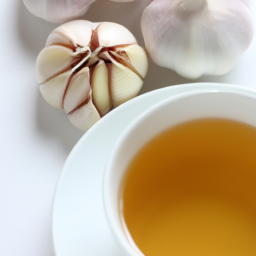
Garlic tea holds a special place in many cultures around the world, revered for its medicinal properties and unique flavor. In traditional medicine, it has been used for centuries to treat a variety of ailments, reflecting its deep-rooted significance in health and wellness practices.
The use of garlic in herbal teas varies from culture to culture, each with its unique preparation methods and rituals. This diversity showcases the versatility of garlic tea and its adaptation to different cultural palates and health beliefs. In some regions, garlic tea is consumed regularly for its health-promoting benefits, while in others, it is reserved for specific ailments or occasions.
Understanding the cultural significance of garlic tea enriches the experience of consuming it. It connects individuals to a long history of herbal medicine and the shared human quest for natural health remedies. Enjoying garlic tea can thus be a way of honoring these rich cultural traditions and appreciating the time-tested wisdom they represent.
Nutritional ValueGarlic tea is increasingly recognized for its benefits in promoting heart health. The compounds in garlic, particularly allicin, have been shown to have a positive impact on cardiovascular health.
Regular consumption of garlic tea may help in regulating blood pressure. Its natural properties can dilate blood vessels, leading to reduced pressure on the arterial walls. This effect can be particularly beneficial for individuals with hypertension or those at risk of heart diseases.
While garlic tea can be a valuable addition to a heart-healthy diet, it's important to maintain a balanced approach that includes regular exercise and a nutritious diet. Consulting with a healthcare professional is also advisable, especially for those with existing heart conditions or those taking medication.
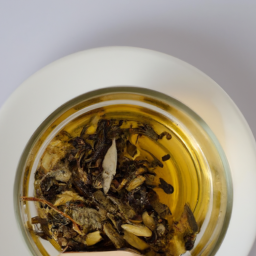
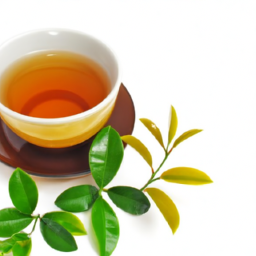
Growing garlic at home for tea is a rewarding experience that ensures you have a fresh, organic supply. Garlic is relatively easy to grow and can be cultivated in gardens or pots. Planting garlic cloves in well-drained soil and ensuring they receive adequate sunlight are key factors for successful growth.
Harvesting garlic at the right time is crucial for optimal flavor and health benefits. Garlic is typically ready to harvest when the leaves turn yellow and begin to dry. Once harvested, it should be dried and stored properly to preserve its properties.
Using home-grown garlic in your tea not only adds a personal touch but also guarantees the purity and potency of your brew. This practice connects you to the process of creating a healthful beverage from start to finish, enhancing the overall experience of enjoying garlic tea.
Menstrual ReliefGarlic tea's benefits extend beyond internal health to include skin health. Blood Pressure Regulation The antioxidants and anti-inflammatory compounds in garlic can have a positive impact on skin conditions. Drinking garlic tea regularly may help in reducing acne, soothing skin inflammation, and promoting a healthy complexion.
The antimicrobial properties of garlic also play a role in skin health. These properties can aid in fighting bacteria and infections, potentially reducing the occurrence of skin blemishes and irritations. Additionally, the antioxidants in garlic tea help combat oxidative stress, a factor in premature skin aging.
While garlic tea can be a supportive element in skin care, it's also important to maintain a holistic approach that includes a balanced diet, proper hydration, and regular skin care practices. As with any natural remedy, individual experiences may vary, and it's advisable to consult with a healthcare professional for personalized advice.
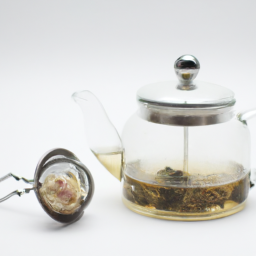
It's generally recommended to drink garlic tea earlier in the day. For some, garlic tea can be stimulating and might interfere with sleep if consumed right before bed. However, individual reactions can vary, so you may need to experiment to see how it affects your sleep.
Yes, garlic tea can be beneficial in relieving symptoms of colds and flu. Garlic has natural antibacterial and antiviral properties that may help in fighting infections. Drinking warm garlic tea can also provide soothing relief for sore throats and congestion.
To make garlic tea, start by peeling and lightly crushing 2-3 cloves of fresh garlic to release their oils. Steep the crushed cloves in a cup of hot water for about 5-10 minutes. Strain the garlic and add lemon or honey to taste, if desired. Adjust the amount of garlic and steeping time according to your taste preference.